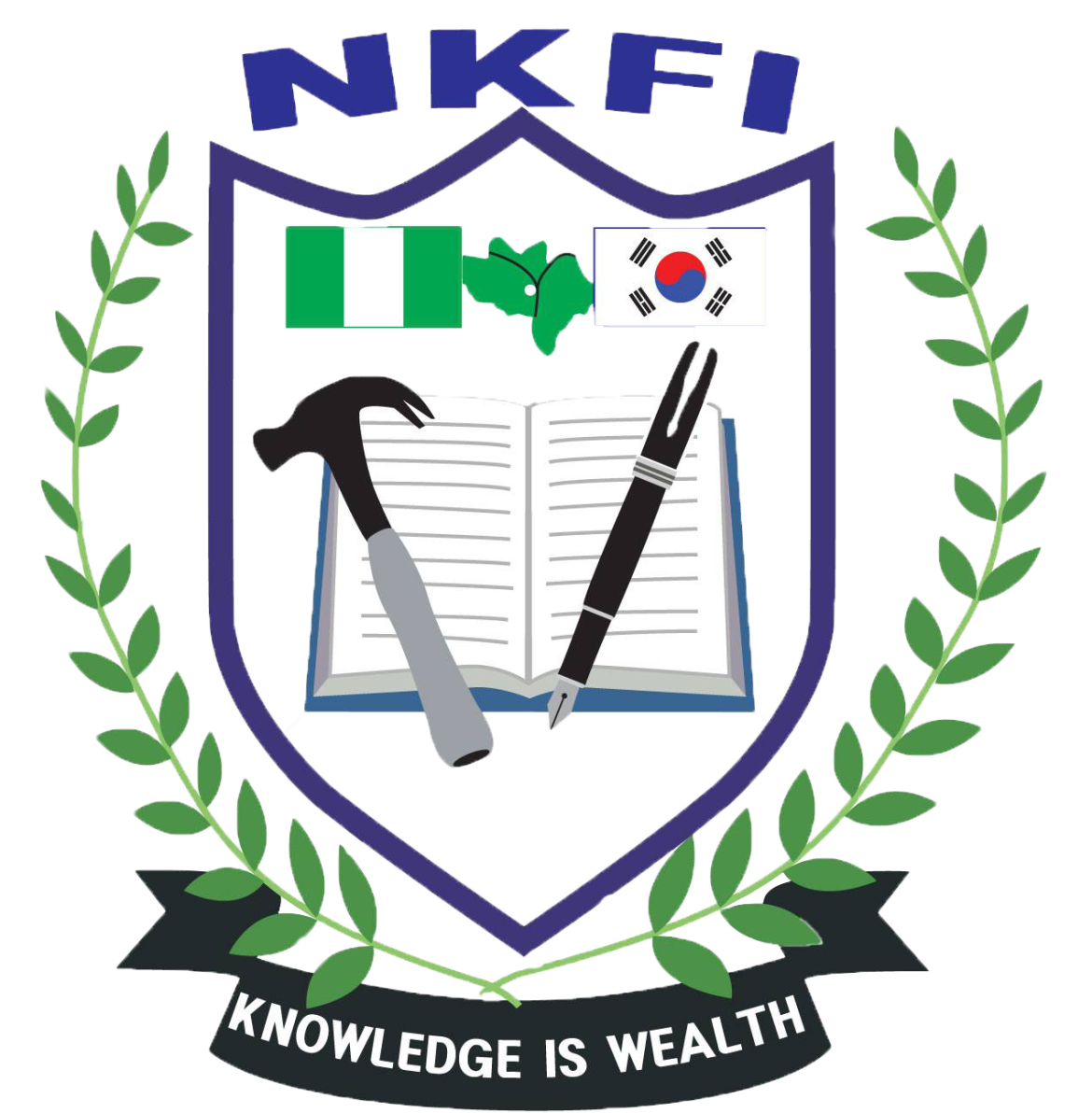352
By Tracy Moses
The Nigeria–Korea Friendship Institute of Vocational and Advanced Technology (NKFI), Lokoja, has secured full accreditation for all its academic programmes from the National Board for Technical Education (NBTE), marking a major milestone in its transformation into one of Nigeria’s most vibrant technical institutions.
Rector of the Institute, Mr. Charles Williams, announced the development on Monday in Lokoja, describing it as a validation of years of hard work, reform, and collaboration.
“This full accreditation is a huge encouragement to us,” Williams said. “It confirms that our programmes now meet the national standards for technical and vocational education in Nigeria. It’s also a testament to the dedication of our staff and the vision we have pursued over the past three years.”
He explained that the accreditation covers all core programmes currently offered at the institute, including Automotive Mechatronics, Welding and Fabrication, Electrical/Electronic Technology, and Computer Software Engineering.
Established through a partnership between the Nigerian and Korean governments, the Nigeria–Korea Friendship Institute was conceived to promote technology transfer and technical education in Nigeria. Located in Kogi State, it aims to equip young Nigerians with hands-on skills in engineering, ICT, and industrial production techniques, reflecting South Korea’s globally admired model of vocational training and industrial growth.
According to Williams, the achievement did not happen overnight but was the result of deliberate reforms aimed at revitalizing the institute.
“When I assumed office in September 2022, we had only about 40 students,” he recalled. “Today, we have over 900. That’s a 500 per cent increase in just three years, which clearly shows that young people are beginning to see the value of technical and vocational education.”
He said the institute’s growing popularity is also linked to the diversification of its programmes and modernization of its learning environment.
“We’ve introduced new courses such as Cybersecurity, Artificial Intelligence (AI), and Robotics, and we’re also developing distance learning platforms so that people in remote areas can access our programmes,” he said. “We want to make technical education inclusive, practical, and responsive to the demands of today’s economy.”
Williams further revealed that NKFI has recorded a 200 per cent increase in Internally Generated Revenue (IGR) within the same period, alongside a major boost in infrastructure and digital transformation.
“We’ve invested in revamping our facilities, strengthened campus security, and built a functional website and academic portal to make registration, assessment, and information sharing seamless,” he added.
The Rector also highlighted the creation of new administrative structures designed to enhance academic quality and student welfare.
“We established new Directorates and Units, such as Student Services and Academic Planning, to ensure that students receive better support and that our curriculum remains dynamic and industry-relevant,” he said.
On collaboration, Williams disclosed that NKFI has signed more than ten Memoranda of Understanding (MoUs) with reputable institutions, including Kogi State Polytechnic, the Confluence University of Science and Technology, and the African Development Study Centre.
“These partnerships are very strategic,” he noted. “They open doors for resource sharing, joint research, and industrial fabrication. We’re also working on exchange opportunities for staff and students to strengthen our technical capacity.”
As part of its community empowerment initiatives, Williams said the institute has trained over 250 young people across eight different vocations and provided them with free starter packs under the Kogi Youth Empowerment and Skill Acquisition Programme.
“We believe that every young person trained at NKFI should leave with both knowledge and the tools to start something meaningful,” he said. “That’s why we ensure our trainees don’t just learn, they’re empowered to begin their own enterprises.”
Looking ahead, Williams disclosed that the institute has already secured a permanent site and is finalizing plans to establish a Part-Time Studies Centre at Obajana, near the Dangote Cement Plant.
“The Obajana centre will allow workers and professionals in industrial areas to access our training without leaving their jobs,” he explained. “We’re also developing our Vision 2030 Strategic Master Plan to guide the institute’s expansion, innovation, and sustainability.”
Williams expressed gratitude to the Korean Government for its consistent technical support through capacity-building and staff training initiatives, which, he said, have been crucial to NKFI’s progress.
“The Korean Government has been a dependable partner,” he stated. “Their commitment to technology transfer, training, and educational exchange has helped us build the kind of institution that can truly empower Nigeria’s youth.”
He also acknowledged the contributions of Kogi’s political leadership to the institute’s success.
“I must sincerely thank former Governor Yahaya Bello for giving me the opportunity to serve and trusting me with this responsibility,” he said. “Equally, Governor Ahmed Usman Ododo has shown remarkable commitment to the mission of empowering Kogi’s youth through technical education. His continued support is a major driving force behind our successes.”
“At NKFI, we are not just training students,” Williams concluded. “We are building the next generation of innovators, technicians, and entrepreneurs who will transform Nigeria’s economy through skill, creativity, and technology.”



